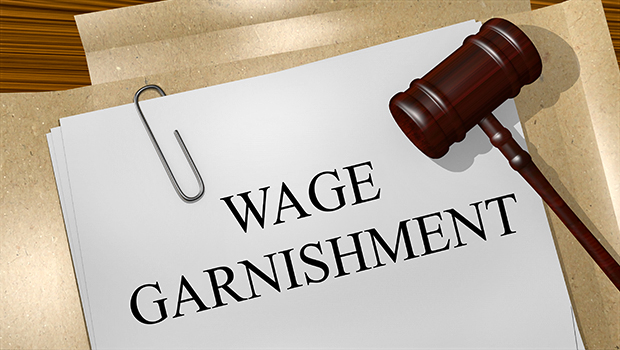Unlike other debts, a tax debt is one of the hardest debts to deal with. One reason why tax debts are so debilitating is that the tax collecting entities, such as the Internal Revenue Service (IRS) and the California Franchise Tax Board (FTB), can take money directly from a taxpayer’s paycheck. This is often referred to as a wage garnishment or a wage levy.
If you find yourself with a smaller paycheck due to the actions of the IRS or FTB, there are a few things you can do about it. But before we get to that point, let’s first examine how garnishment works with the IRS and FTB.
What Is IRS Wage Garnishment?
Garnishment refers to the legal process where an entity, such as the IRS, takes money or property from someone to satisfy a debt. Specifically, the IRS can force an employer to withhold a certain amount of money from an employee’s paycheck and forward that money to the IRS.
Before the IRS can begin garnishing a taxpayer’s wages, they will send a series of letters informing the taxpayer of the debt’s existence, the amount, how to contest the IRS’ determination, and how the taxpayer must take action to make arrangements to pay off the tax debt.
Assuming the taxpayer continues to ignore these letters, the IRS will get in touch with the taxpayer’s employer to make arrangements to have money taken out from each paycheck.
What Is FTB Wage Garnishment?
In principle, an FTB wage garnishment is just like an IRS wage garnishment. If a California taxpayer gets behind on their taxes, they may be subject to a Personal Income Tax Earnings Withholdings Order for Taxes. This is often referred to as the Earnings Withholdings Orders for Taxes, or EWOT. As is the case with an IRS wage garnishment, there are limits to what the FTB can take from each paycheck.
How to Stop Wage Garnishment by the IRS or the FTB?
Short of paying off the tax debt or successfully attacking its validity in court, there only are a few options a taxpayer can do to stop a wage garnishment. Keep in mind these methods can’t permanently stop the garnishment, but can either reduce it or provide a reprieve.
Earn Less Money
The more money a taxpayer makes, the more money that can be garnished. However, there are certain limits to the amount that can be taken. This allows the taxpayer to pay for food and other necessities. So if a taxpayer makes a small enough amount of money, it’s possible that the IRS or the FTB will be unable to garnish any of it.
Change Jobs
It’s the employer that engages in the actual act of garnishing money. So by changing jobs, the FTB or IRS must find this new employer and work with them to have the taxpayer’s paycheck garnished and this takes some time to set up.
File for Bankruptcy
For most people, this will be a method of last resort. That’s because starting bankruptcy proceedings will only stop wage garnishment for a certain period. Yet the tax debt will likely remain and filing for bankruptcy will have a very detrimental effect on the taxpayer’s financial history.
Conclusion
If you find yourself having your wages garnished, you need to accept that there is likely no quick and easy fix. A tax professional can be very helpful when dealing with a wage garnishment situation. This is especially true if there are questions as to the amount of the tax debt and whether you owe anything in the first place.

